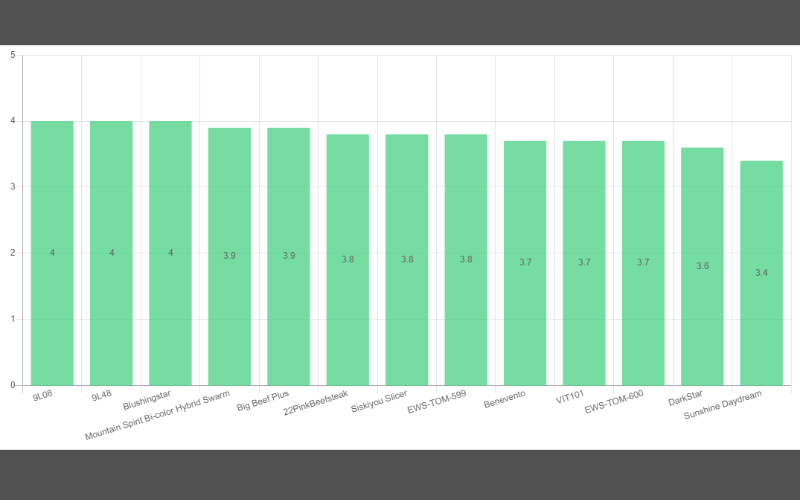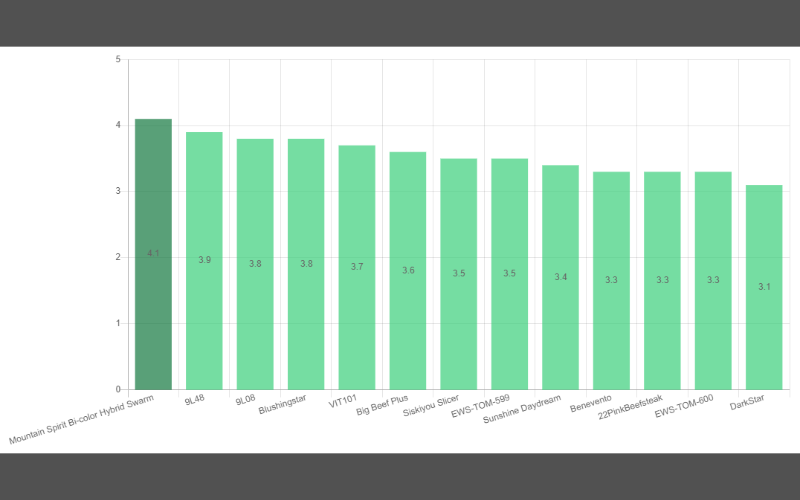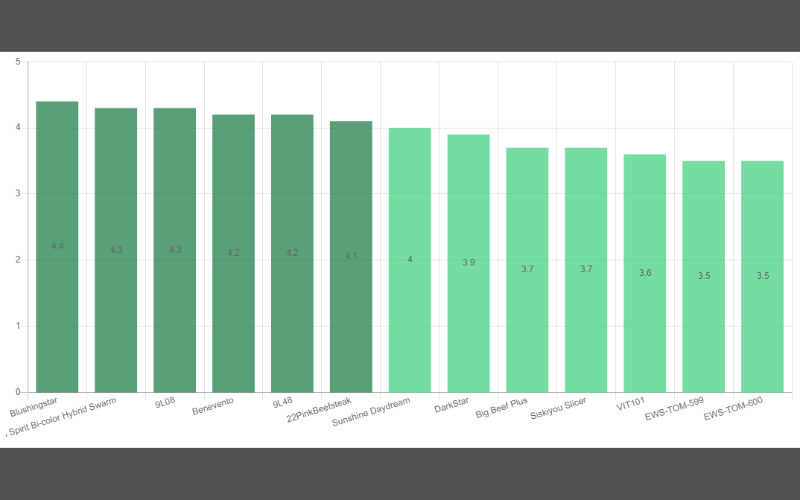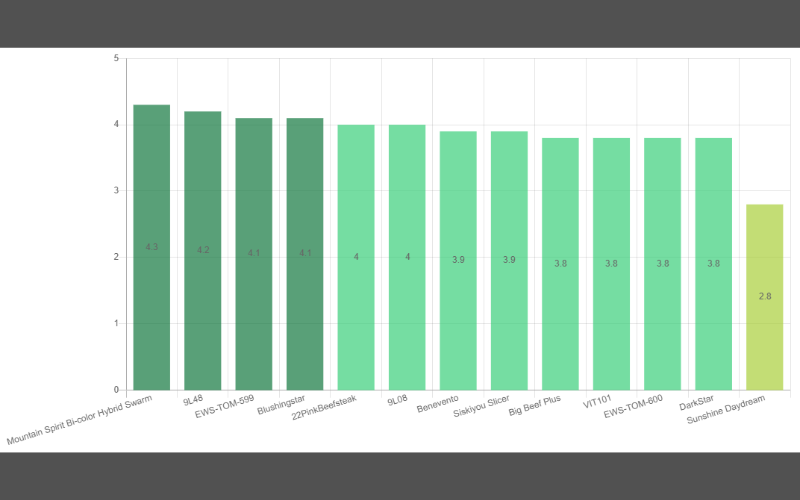Co-Founder & Data Science Lead
Informatics analyst with 10+ years’ experience building, running and interpreting cognitive neuroscience and microbial ecology experiments with both frequentist and Bayesian statistical approaches using modern development techniques.
Co-Founder & COO
Remi Bethouart served as SeedLinked’s Chief Operating Officer from September 2022 until his passing in late summer 2024. A skilled French engineer with a background in computer science, Remi excelled in IT consulting, where he developed data strategies, governance systems, and platforms for diverse industries. At SeedLinked, his leadership was vital. He built the product development framework, sales pipeline, and customer service structure, while shaping key business and fundraising strategies. His vision and expertise strengthened our company’s foundation, and the confidence we have in our direction today is a testament to his lasting impact. Remi’s legacy continues to guide us forward.
Senior Software Engineer
Senior full-stack developer with deep agricultural roots, I bring IT expertise combined with a passion for farming. Proudly leading SeedLinked’s software development, I manage projects, shape strategies, and architect the platform, focusing on integrating innovative solutions like AI to enhance efficiency and value. With a forward-thinking mindset, I am constantly excited to learn and innovate at the intersection of software and ag-tech. I live in Southern India, where my family owns and manages a farm.
The Liveseeding project is a European initiative aimed at enhancing the sustainability and resilience of agricultural systems through the promotion of seed diversity and organic plant breeding. Here are some key aspects of the project:
Objectives:
- Promote Biodiversity : Increase the diversity of seeds used in agriculture to create more resilient and adaptable farming systems.
- Support Organic Farming : Develop and promote seed varieties that are well-suited for organic farming practices.
- Engage Stakeholders : Involve farmers, gardeners, breeders, and researchers in the process of seed selection and breeding.
- Facilitate Knowledge Sharing : Create platforms and networks for sharing information and best practices related to seed breeding and organic farming.
SeedLinked: Streamlining Organic Variety Trials in Europe
SeedLinked is a key component of the Liveseeding project, serving as an innovative digital platform that fosters collaboration and data sharing among gardeners, farmers, and seed breeders. SeedLinked is revolutionising seed selection for European farmers by providing a one-stop shop for collaborative variety trials. Launched across 16 countries with localized interfaces in 8 languages, the platform empowers farmers to make informed decisions. Farmers can now discover trials happening in their region, learn from fellow growers’ experiences, and leverage the newly launched pilot feature for recording crop yields. This data-driven approach is crucial for choosing the best seeds for their specific conditions.
Here’s how it fits into the Liveseeding initiative:
- Crowdsourcing Data : SeedLinked allows users to contribute data about their growing experiences with different seed varieties. This crowdsourced data helps build a comprehensive database on seed performance across various climates and soil types, which is crucial for the Liveseeding project’s goal of promoting diverse and resilient seed varieties.
- Community Engagement : The platform connects a community of growers and breeders who can share insights, feedback, and recommendations. This engagement is vital for the Liveseeding project’s objective to involve local communities in seed selection and breeding processes.
- Research and Development : By aggregating data from numerous users, SeedLinked provides valuable insights for researchers and breeders. This helps in identifying high-performing varieties and developing new ones, aligning with Liveseeding’s mission to enhance seed diversity and adaptability
- Promoting Biodiversity : SeedLinked supports the testing and promotion of a wide range of seed varieties, which is essential for Liveseeding’s aim to increase agricultural biodiversity and resilience to climate change.
SeedLinked is continually evolving, with planned enhancements like improved translations and bioregional support. This collaborative platform bridges the gap between farmers and researchers, speeding up the development of high-yielding organic varieties suited to Europe’s diverse climates and agricultural practices. The platform addresses potential challenges like technology mistrust and data ownership concerns through comprehensive user guides and strong data security measures. By embracing digital tools like SeedLinked, European agriculture can move towards a more sustainable and productive future.
The 2023 SeedLinked Cherry Tomato Trial features 14 new varieties from some of the industry’s most innovative breeders, such as Panam Seeds, N&N, Seed Savers Exchange and Wild Mountain Seeds. From picture-perfect reds to striped or anthocyanin-blushed cherry tomatoes, participants received a subset of 3 unique varieties to compare.Growers were asked to plant at least 3 plants per variety in the same setting. The plant breeders have a special interest in comparing open field/garden and hoop house/caterpillar tunnel environments,This trial is only open to US growers.
This trial focuses on sweet bell peppers that can reliably ripen to full yellow, orange, or red color. Join the hunt for the most flavorful, productive, disease resistant, uniform, and reliable colored bell pepper varieties. Growers received a subset of three varieties. Participants are asked to plant at least 3 plants of each variety. Breeders are particularly interested in comparing open air/outdoor production with protected culture settings such as caterpillar tunnels and greenhouses. Plant in protected culture if you can, This trial is only from US growers.
Nothing beats a crisp and refreshing salad on a summer day, but growing lettuce during the heat of summer is always a challenge. See how tried-and-true varieties stack up against newcomers for production during summer. This trial included a mix of green Batavia and Romaine lettuce. Growers received a subset of 3 varieties, and are asked to plant at least 10 individuals of each variety in the same conditions, either by transplanting or by overseeding and thinning to 10 plants at standard head lettuce spacing (or 12″). Trial were planted the last spring or summer planting, or by July 10th.
Winter squash varieties have been anecdotally reported to perform very differently in full vs reduced tillage systems. In this trial we are testing 10 specialty moschata types, from exciting new releases to underappreciated heirlooms. This trial includes Autumn Frost, Long Island Cheese, Black Futsu, Autumn Crown, Cheese Culinary Pumpkin, Seminole, Doran Round, and Gouda Winter Squash varieties (all either untreated or certified organic). Everyone loves butternut, but specialty Cucurbita moschata squash can be even more delicious than usual butternuts, and their unique shapes make them a perfect decorative piece on a kitchen or farmers market table. In this trial we are especially interested in comparing standard tillage vs reduced tillage systems.
CTO
Hans Boot is a senior IT engineer, mainly working in Enterprise IT Architecture and CTO roles. He has a background in IT systems for agriculture, and has worked in both large consulting firms as well as startups (some as founder or co-founder) in mainly international settings. His desire of looking at the big picture while knowing the details is especially useful when working with leading edge technologies and diverse teams.
In 2022, we organized a slicer tomato collaborative variety trial with the goal of having farmers and gardeners across North America grow well-known varieties side-by-side with newly released hybrid and open-pollinated varieties and rate them for a variety of traits on the SeedLinked platform. At the conclusion of the growing season, our aim was to freely share the results of our variety trial on our Seed Marketplace and in this blog with growers, seed companies, and anyone else who is interested. Thank you for your interest and taking a look!
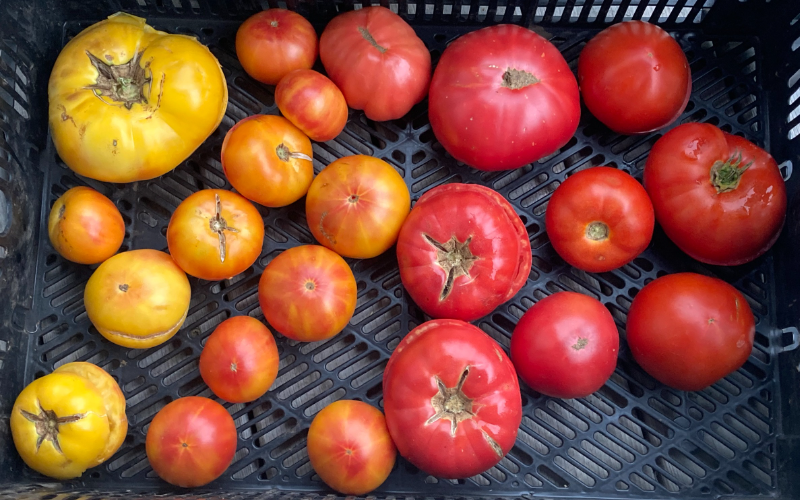
Trial Methods
In January 2022, the SeedLinked team searched through seed catalogs for standard open-pollinated and hybrid slicer tomato varieties. Additionally, we reached out to tomato breeders and seed companies in the United States to see if they had any newly bred and/or released open-pollinated and hybrid varieties to add to the trial to see what performed best. We had a great response and had the following businesses share varieties with us: A.P. Whaley, Artisan Seeds, Earthworks Seed, Johnny’s Selected Seeds, KC Tomato, PanAmerican Seeds, Vitalis Organic Seeds, Siskiyou Seeds, and Wild Mountain Seeds. Thank you to the companies for their generosity and willingness to participate!
Varieties in the 2022 SeedLinked Slicer Tomato Collaborative Variety Trial were: Benevento, Big Beef Plus, BlushingStar, DarkStar, EWS-TOM-599, EWS-TOM-600, Mountain Spirit Bi-color Hybrid Swarm, Siskyou Slicer, Sunshine Daydream, VIT101, 22PinkBeefsteak, 9L08, and 9L48. We used Big Beef Plus Tomato as our check variety in the trial as it is a commonly grown hybrid slicer tomato. Additionally, the varieties with numbers in their names are not currently commercially available, although many might be in the next few years.
Also in January 2022, we invited farmers and gardeners across the United States to join our trial by reaching out to those who have successfully been part of our trials in the past as well as through an open link on our website. We had 127 growers join the slicer tomato trial (see map below). The trial was a sub-set trial, where each participant was randomly assigned three varieties from the larger set of 13 varieties to grow side-by-side and rate them on the SeedLinked website or App (Android or iPhone/iPad).
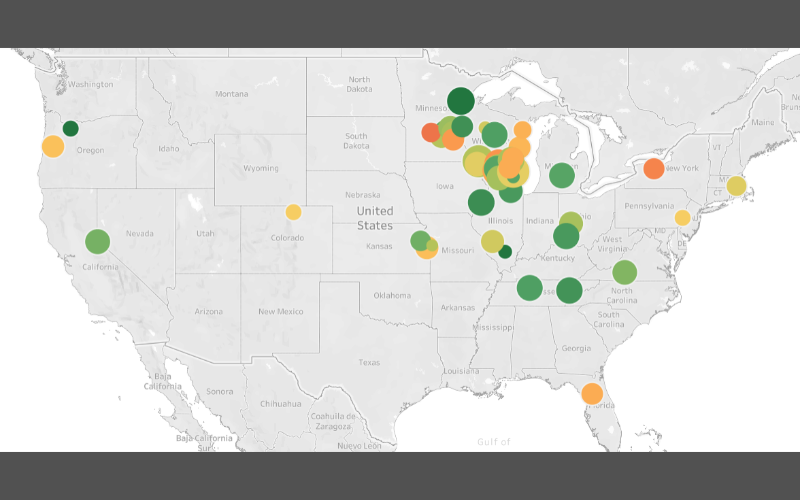
In the first week of March 2022, we mailed tomato seeds and planting stakes to trial participants and made the trial active on SeedLinked so growers could start entering their reviews.
During the 2022 growing season, trial participants grew the varieties as they normally would in their garden or on their farm and were asked to log in to SeedLinked on the web and/or app and input the following data:
- Dates: planting, transplanting, first harvest, and last harvest dates
- Traits: rate each variety on a scale of 1 to 5 stars for the following traits: appearance, cracking resistance, disease resistance, earliness, flavor, marketability, storage, vigor, yield, and overall
- Comments: provide general and trait-based written comments
- Images: share photos of the varieties growing and harvested fruit
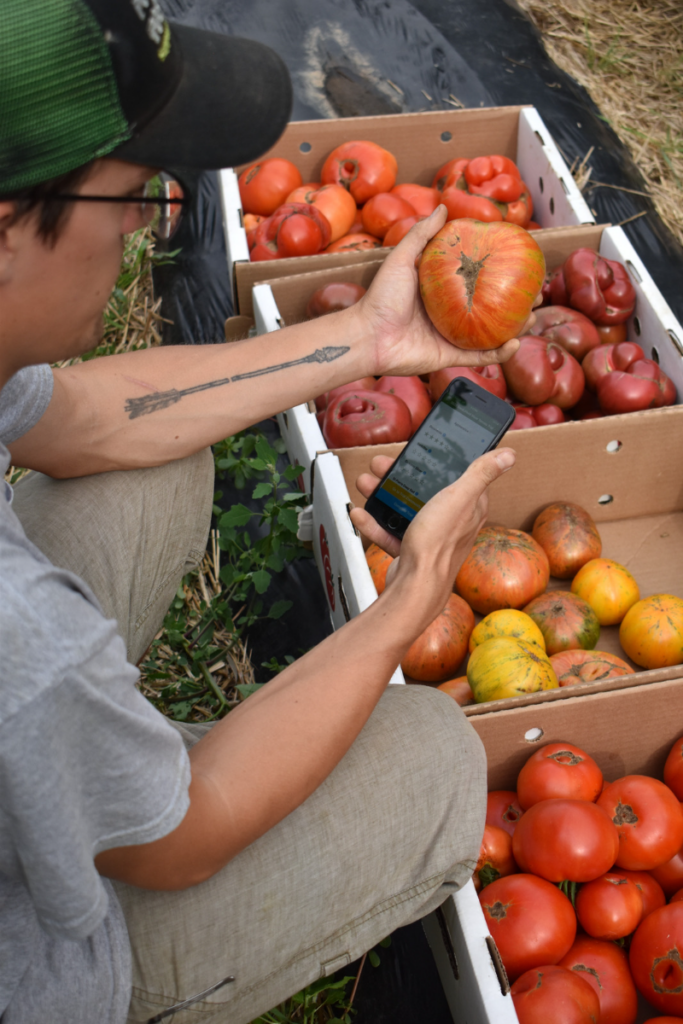
2022 SeedLinked Slicer Tomato Trial Results
Once the trial was closed for entering data in December 2022, results were automatically calculated by the SeedLinked platform and shared with participants. Of the 127 growers that accepted the trial and received seeds, 70 grew out the varieties and shared their reviews on SeedLinked, which is an exceptional rate of participation for a collaborative variety trial. You can view the interactive slicer tomato trial results HERE.
Note: We recommend logging into your existing SeedLinked account or creating an account when viewing the results. This gives you the opportunity to filter results by hardiness zone to zero in on varieties that performed well in your location. Additionally, we recommend checking out our blog ‘Digging into SeedLinked Trial Results‘ to learn how to filter and view trial results.
Overall Results
When all traits were taken into account and averaged, growers found that 9L08, 9L48, and BlushingStar performed the best overall (all averaged 4 out of 5 stars).
Results by Trait: Yield
The highest-rated slicer tomatoes for yield were Mountain Spirit Bi-color Hybrid Swarm (4.1 stars), 9L48 (3.9 stars), and 9L08 (3.8 stars).
Results by Trait: Flavor
The highest-rated for flavor (a.k.a. best tasting), were BlushingStar (4.4 stars), Mountain Spirit Bi-color Hybrid Swarm (4.3 stars), and 9L08 (4.3 stars).
Results by Trait: Disease Resistance
Trial participants found the most disease-resistant slicer tomato varieties were: Mountain Spirit Bi-color Hybrid Swarm (4.3 stars), 9L48 (4.2 stars), and EWS-TOM-599 (4.1 stars).
If you would like to dig into the result by trait and filter them by growing zone, check out the interactive trial results on SeedLinked HERE.
Appreciations
Thank you to all of the gardeners and farmers who participated in SeedLinked Slicer Tomato Trial in 2022. With your help, we are creating more open-source data for how vegetable varieties perform across the United States. Additionally, we would like to thank all the seed companies that shared seeds with us for the trials. Thanks for being open to having your varieties tested by a wider audience of growers around the United States.
Published 12/9/22


